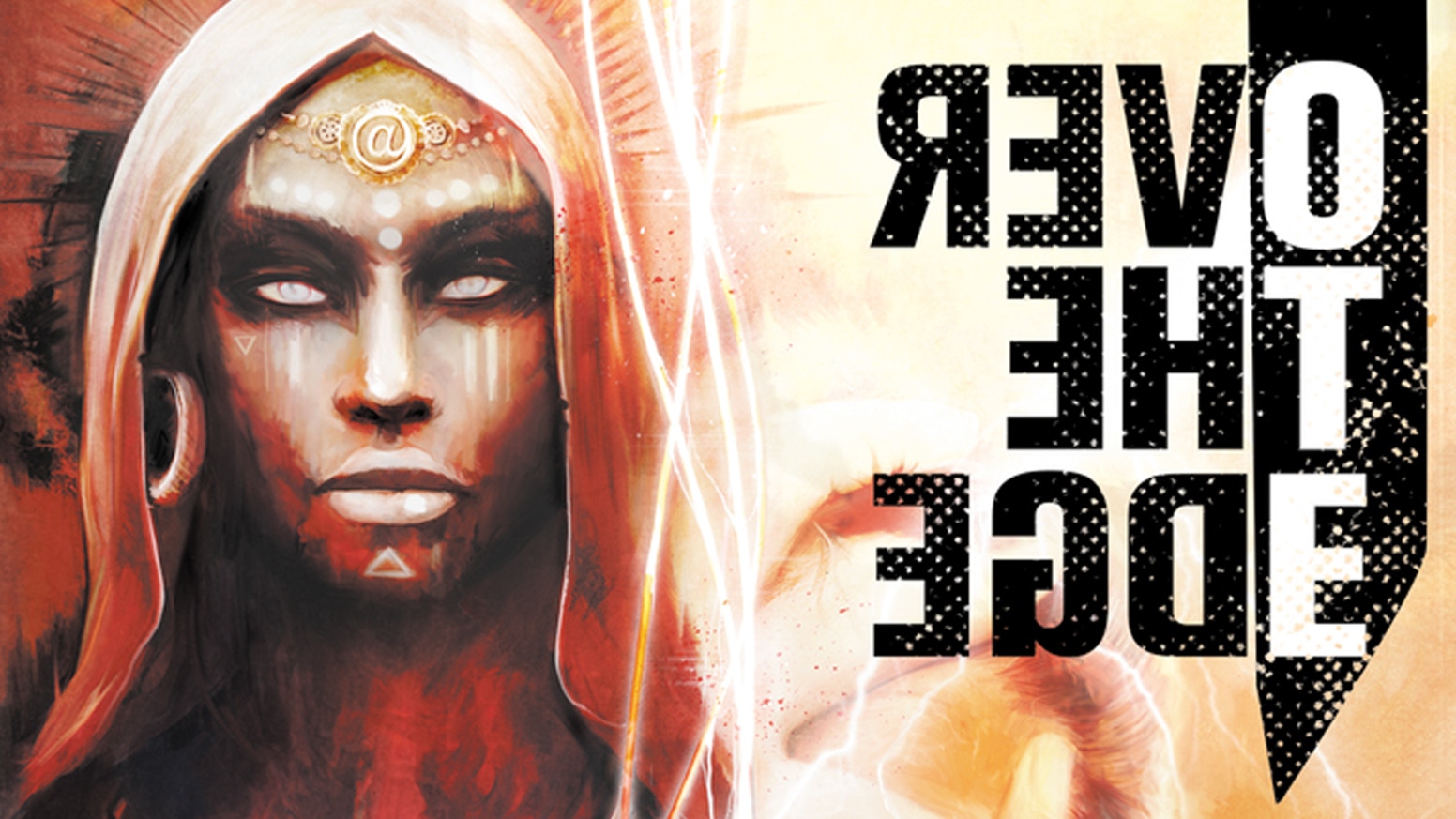A conversation with Jonathan Tweet!
I hope I do not bore anyone by repeating myself about the influence of Over the Edge upon me in role-playing, both in helping me return to enthusiastic play from a doldrums period and in providing me with a fresh view toward design. The DNA of Sorcerer lies back in The Fantasy Trip and in first-generation Champions, but its physiology did not take shape until Over the Edge came along.
We met in 2000 and I was amazed to find that he was already familiar with Sorcerer – it’s been a great pleasure through the years since.
Anyway, OTE has just funded for a dream/new version via Kickstarter, and in the course of discussions, Jonathan mentioned some back-and-forth mutual inspiration:
Traditionally in RPGs, being honorable was a “psychological limitation”, a “weaknes” that gave you more “points” to make your character strong in another way. Ron said that if a character was honorable, it meant that the character’s honor would be a theme in the campaign. Whether the character ended up acting honorably at a personal cost or they betrayed their honorable principles to achieve some other goal, the character’s honor was part of their story. This approach to character traits directly informed the question mark characteristic in Over the Edge.
We went on to a recorded conversation about that! It would be perfect except for a little techno-hassle; Jonathan’s visual cut out in the middle, but he comes back later.
Here’s the G+ collection with lots of commentary, including the post which led me to ask Jonathan for this conversation, and here’s where you can pre-order the game.
So much to discuss – I’m looking forward to your thoughts in the comments.


One response to “Humanity and morality in design”
Morality, setting, systems, and play
This is such a rich topic, and I feel like to get a good handle on it, you would need to drill into individual games . . . and even actual play sessions.
A few quick observations.. Morality in a RPG is a complex, multi-levelled thing. Moral values can be generated by the game system itself, but those values are also generated by the way the game system interacts with the gaming group and the way it positions the GM with respect to the players.
Another important part of the equation involves the fictional world where players are situated. This last factor seems especially important for Over the Edge: The vast majority of the rule book is actually an account of the setting of Al Amarja (35 pages for rules, 200 pages for setting and scenarios). Tweet says at the very start that his rules are easy and functional, but he then says “Let the setting and your understanding of the universe guide your role as Game Moderator or player and simply use the rules as far as they work.” And that setting is brimming with different factions who abide by various moral codes. In this regard, I’m not sure its accurate to call the game amoral. Certainly, it does not impose those rigid moral categories in the way that D&D does with its alignment system. But characters placed into Al Amarja are certainly going to have to decide what values will guide them, and the way the GM deploys the setting will impact those decisions. The morality will emerge from the negotiations between the players and the GM. Some type of moral value system will have to emerge, and the way that Tweet writes Over the Edge and its accompanying setting description is going to have a strong effect on how that system emerges.
I’d also pay attention to backdoor ways in which a game can dictate a moral framework. Tweet includes an epigraph from Burroughs: “Nothing is true. Anything is possible. Everything is permitted.” But let’s say that leads me to create a character who is super powerful, and I decide my goal (my morality) is to kick ass in Al Amarja and become a narcissistic god among its inhabitants. That kind of morality is strongly discouraged by the game, with Tweet giving a few specific warnings to “power gamers” and giving advice to the GM as to how to discourage them.
I’m curious as to how the new Over the Edge is going to deal with some of the issues of gender, race, children, and social class that make me uncomfortable. In the original game, it would be up to the GM and players to determine how messy and gritty they wanted to play things, but if you start to think too much about groups like “The Pubes” and “The Low-Lifes,” Al Amarja isn’t the amoral playground of pleasure and delights that it sometimes advertises itself to be. This ultimately isn’t a criticism of the game. In fact, it’s the opposite. If I were to run or to play in Over the Edge, the game would become filled with deeply moral implications and that would make it fun and fulfilling . . . if I were in a group willing to explore the issues with me. And one of the reasons why it would be fulfilling would be that Over the Edge isn’t as insistent on putting morality into boxes of alignments.